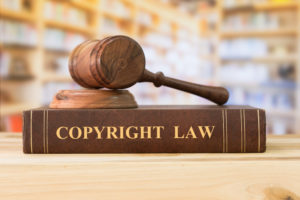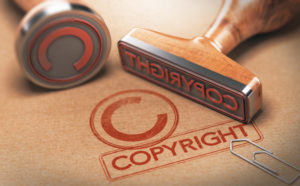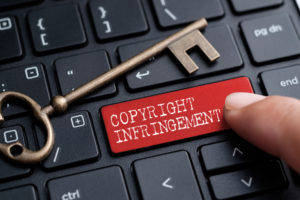The Basics of Copyrighting
Let’s face it: You’re a writer, not a lawyer (unless you’re Larry Roth, Bruce Hopkins, or a handful of other Dorrance Authors who also work as attorneys). So, beyond the basic definition, Copyright Law can be fairly difficult to navigate. No offense to the U.S. Copyright Office, but their material can be overwhelming and every other website gives author’s completely different advice regarding when they need a copyright and why. Well, we took the liberty of simplifying everything:

What is it?
A copyright is a form of protection grounded in the United States Constitution and granted by law for original works of authorship fixed in a tangible medium of expression. An original work of authorship is defined by the U.S. Copyright Office as, “a work that is independently created by a human author and possesses at least some minimal degree of creativity.”
In other words, a copyright is a form of legal protection that can be applied to most tangible forms of original work.
When do I need it & why?
This is the category where most author’s get confused, so we’ll simplify it. There are two different types of copyrights: unpublished and published copyrights (otherwise referred to as pre-registered vs. registered). Pre-registering refers to copyrighting a book before it is completed while registering is copyrighting after publication.

When it comes to deciding what type of copyrighting you want, there are a few things you need to know. Firstly, pre-registering your book for an unpublished copyright isn’t like simply registering early. The U.S. Copyright Office states, “Pre-registration is not a substitute for registration. If you do pre-register your work, you are required to register it when it is published.” Essentially, regardless of whether you get a manuscript pre-registered or not, you need to obtain a published copyright. So, really, the question becomes: is pre-registering worth it?
Coming directly from the U.S. Copyright Office website, it states, “For the vast majority of works, pre-registration is not useful.” In addition, under a section titled, “When is my work protected?” they state, “Your work is under copyright protection the moment it is created and fixed in a tangible form that is perceptible either directly or with the aid of a machine or device.”
The only time pre-registering a work is useful is in terms of filing litigation, otherwise, it’s not necessary for most works. The truth is, most people who file for pre-registration just want to get it for peace of mind. It’s up to you to decide if that’s worth $140 and months of your time. According to the U.S. Copyright Office itself, for most people, it really isn’t.
What is recommended, however, is a published copyright (or a registered copyright). A registered copyright will provide you with the following rights:
1. Ability to reproduce the work in copies
2. Produce derivative works based upon the work
3. Distribute copies of the work by sale
4. Display or perform the work publicly
5. Ability to authorize others to exercise these exclusive rights
6. Ability to file an infringement lawsuit
As you can see, these legal rights are fairly necessary for the publication of a manuscript. Though it’s not illegal to refrain from registering within the United States, it’s highly recommended. If you choose to publish under a publisher, most companies will register your copyright for you. However, traditional publishers will register under the company name since they’re essentially buying the rights to your manuscript. Whereas, with most self-publishing companies, the copyright will be registered under your name so you’ll retain all the rights listed above.
When you’re shopping around or deciding in which mode to publish, make sure you ask questions about copyrighting to confirm that your potential publisher’s copyrighting strategy is aligned with your goals.

What isn’t copyrighted?
This goes back to the word “fixed” in the definition of copyrighting law. “Fixed” refers to the works being “captured in a sufficiently permanent medium such as the work can be perceived, reproduced, or communicated for more than a short time.” Essentially, the work has to be in a physical form to be copyrighted. That means copyright law doesn’t protect or apply to the following:
1. Ideas or concepts
2. Works that are not fixed in tangible form
3. Titles, names, short phrases or slogans
4. Familiar symbols or designs
We’re hoping we were able to give you a little more insight into the complicated world of Copyright Law. It can certainly be difficult to navigate, but doing your research makes the difference between copywrong to copyright.
